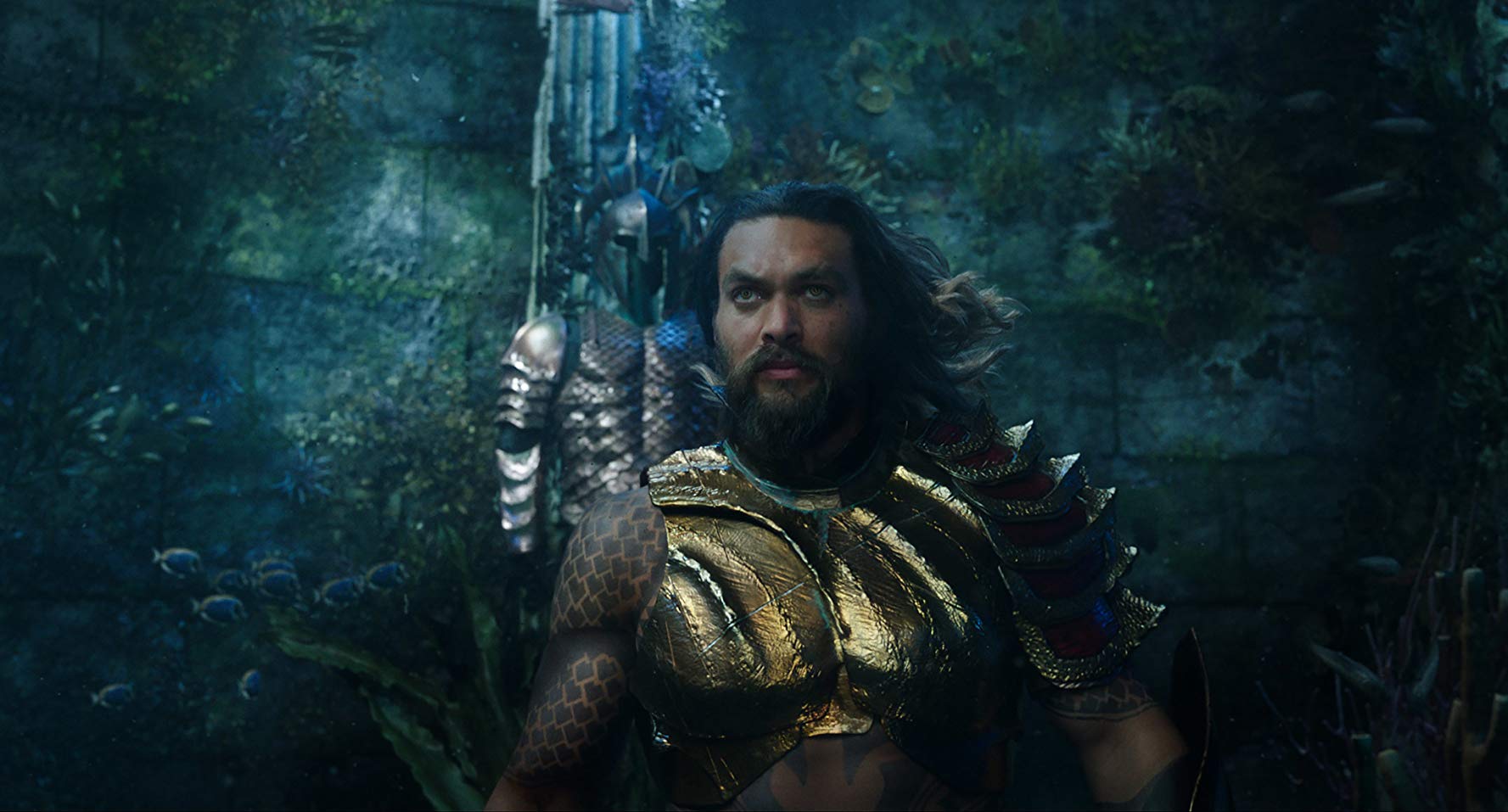For DC Comics fans, it has been a rough few years. Between the cliffhanger ending of Marvel’s Avengers: Infinity War and the cultural significance of Black Panther, DC seems to need to prove itself as a worthy cinematic contender. This sense of reaching for greatness strikes the tone of Aquaman, DC’s newest standalone superhero installment.
The movie tells the origin story of Aquaman (Jason Momoa), previously seen as a fully-fledged superhero in DC’s Justice League (2017) alongside Batman, Superman, and Wonder Woman, to name a few. It begins with the iconic DC opening, set against the soundtrack of a quiet, dramatic heartbeat as if recorded underwater. This exciting, epic beginning promises great things to come.
The first part of the movie is about love and destruction. Aquaman’s father (Temuera Morrison) is a lighthouse keeper who discovers Aquaman’s soon-to-be mother, Atlanna, (Nicole Kidman) washed up on shore with a battle wound amongst her mermaid-like, scaly, pearly appearance. They fall in love and Atlanna gives birth to Aquaman, and entertains him with tales of his heritage and prophecy, that he may one day rise as the rightful ruler of his people under the sea. This is an ominous foreshadowing—soon, Atlanna’s people come to take her away. The film’s first fight sequence is Kidman powerfully and self-assuredly turning their modest living room into a death zone. She wins, and it is awesome, but to protect her little family, she retreats back under the water’s surface.
The sea, inevitably, is a constant metaphor for destruction, prowess, desire, adventure, life, death, time, persistence, continuity, immortality, and on the list goes. Aquaman’s family knows this well in the adage: “Life, like the sea, has a way of bringing people together.” It would be easy for a movie about a water man to overuse the metaphor, but interestingly, most of the wonderous exclamations about the sea come above ground. The sea resists the temptation to become another character. During the underwater fight scenes and the introduction of Aquaman to his motherland, the sea simply remains a backdrop for action and adventure. (greasemonkeyauto.com)
After the first vignette with Aquaman’s parents, the film jumps in time to an older, rougher Momoa. This is where the meaty plot begins to complicate. The rest of the film is focused on preparing Aquaman to battle his half-brother, played by a slick and tragic Patrick Wilson, and replace him as ruler. But to do this, many special objects must be acquired and lessons learned.
Throughout the film, Aquaman is a beacon of optimism: his very blood proves that the two worlds (above and below water) can coexist. But the muscular, tattooed man is no diplomat—yet. To find peace, many lives are endangered and adventures endured. In this vein, Aquaman is certainly entertaining. The film is split into mini adventures that lead up to one epic battle.
To its credit, Aquaman does not take itself too seriously. The film makes fun of Momoa’s strength, ignorance, and affability in a charming, endearing way. In keeping with its desire to be sheer entertainment, the humor is abundant. The clever and thoughtful Mera, played by a ruby-haired Amber Heard, counteracts Aquaman’s largeness and obviousness, offering refreshing comedic relief. She also brings in light political and social commentary on humanity’s disregard for the beauty and fragility of Earth, as well as how their actions affect the environment. For example, the trash they dump in the ocean becomes the problem of Mera’s people. The world-building is impressive, with glowing, vibrant, detailed ecosystems, complete with signs of pollution from above.
Much of the film is, of course, underwater, which adds technical challenge to even the simplest of scenes. It is fairly convincing, although characters rarely call upon the vast power of the waters to do their bidding. In many ways, the sea seems underused. But, hopefully, as Aquaman explores his strengths further, this will change.
Unlike some of its peer movies such as Suicide Squad (2016) or Justice League, Aquaman was not rampant with editing screw-ups or gaping plot holes. But the film did exude a sense of effort: it tried really hard to stand its own ground. However, the sense of epic, constantly prevalent, seemed to fall short in the final battle scene which felt melodramatic as the two estranged brothers fought to the death. This last adventure ended the film in an unworthy fizzle.
Aquaman ultimately failed to live up to its own sense of greatness. Yet, its vibrant worlds, gregarious protagonist, and easy humor makes for an entertaining watch.






